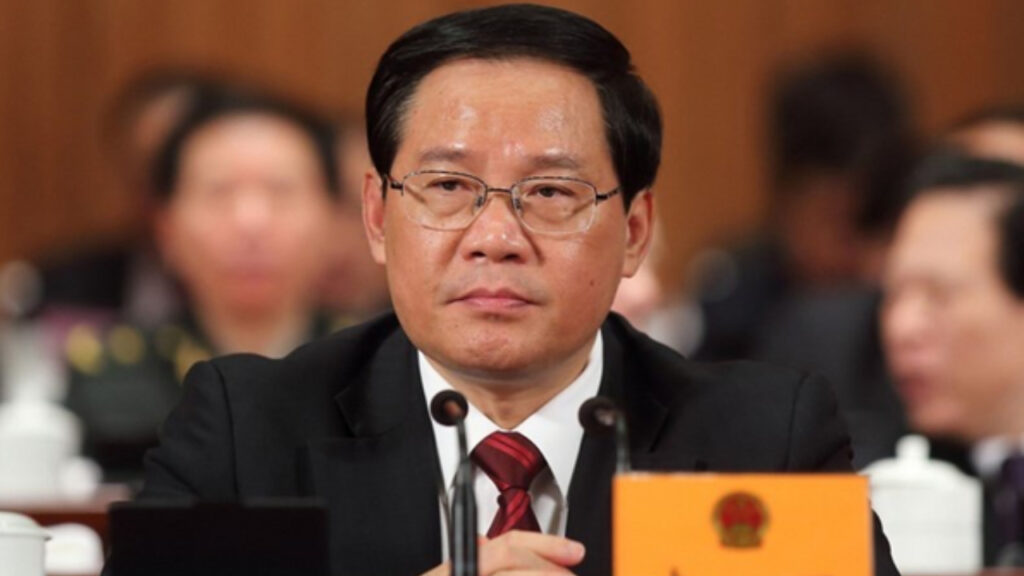Markets
WSJ Print Subscription Says China’s New Premier Has Xi’s Ear
The question here is how far and how long that influence Xi’s influence will extend said WSJ Print Subscription.
No one in China besides Mr. Xi himself has more potential sway over the future of the world’s second-largest economy than Mr. Li. The 63-year-old, who is set to be confirmed as premier after a rubber-stamp vote by China’s legislature on Saturday, previously served as party chief in the Chinese financial center of Shanghai. He is known as a Xi loyalist who will enforce Beijing’s policies aggressively when asked but also a pro-business pragmatist who is willing to test the boundaries of party policy.
Past Chinese premiers have exerted vast influence over the Chinese economy.
Zhu Rongji, as premier from 1998 to 2003, slashed the state sector to nurture a more-open market and usher China into the World Trade Organization.
But Mr. Li is stepping into a role that has become diminished in power and prestige under Mr. Xi. The influence of the departing premier, Li Keqiang, was weakened as Mr. Xi centralized power in his own hands.
China announced last week an economic-growth target of around 5% for this year, indicating a shift in priorities away from raw economic expansion. The comparatively conservative target comes after the country notched 3% growth last year, its slowest rate in decades, largely due to strict Covid restrictions and a crackdown on the private sector.
Get The Economist Epaper Digital 3-Year Subscription for $95
Unlike previous premiers, the younger Mr. Li comes into the job without having held office at the national level before his promotion last fall to the party’s top leadership. That lack of experience and a close relationship with Mr. Xi dating back to the early 2000s has led many political observers to speculate that he will function more or less as a yes-man to the Chinese leader.
“I do see Li as a yes-man, but that doesn’t mean he can’t be consequential,” said George Magnus, a research associate at Oxford University’s China Centre. “He is an agent to deliver what Xi wants, perhaps an effective agent, and interlocutor. But he will not change China’s development model or persuade Xi to lead a charge back towards market reforms.” Said to WSJ Print Subscription.
The State Council Information Office, which handles press inquiries for the Chinese government and state leaders, didn’t respond to a request for comment.
Mr. Li has taken a leading role in shaping some of the party’s most important decisions over the past months.
Leveraging his trust in Mr. Xi to roll back policies that might have otherwise caused more lasting damage to the economy, according to people familiar with the matter.
Top party officials have typically waited until their government posts are officially confirmed before assuming new responsibilities, but Mr. Li waded in early, starting with China’s pivot away from zero-tolerance Covid controls late last year.
Soon after his appointment as the party’s No. 2 in October, Mr. Li assumed leadership of a national Covid task force, succeeding Li Keqiang, according to some of the people. By that time, Mr. Xi had already decided to move toward reopening, though he remained cautious about how quickly to do it.
Get WSJ Print Edition Get The Wall Street Journal Newspaper 52-Weeks Delivery for $318
Worried about the government’s ability to corral faster-spreading Covid variants and the impact of repeated lockdowns on China’s deteriorating economy, Mr. Li and some colleagues in the leadership lobbied for a faster rollback of zero-Covid, according to people familiar with the matter.
To make their case, they played to Mr. Xi’s sense of pride, arguing that zero-Covid undermined China’s ability to compete with the U.S., the people said. As evidence, they pointed to a letter to the leadership from Terry Gou, founder of Apple supplier Foxconn Technology Group, who warned that strict Covid controls threatened China’s central position in global supply chains.
Mr. Xi was persuaded to give a green light to the wealthy southern province of Guangdong to test a more-targeted approach in Covid controls similar to one Mr. Li tried briefly in Shanghai in the spring of 2022 before abandoning it as the contagion worsened. This involved minimizing economic disruptions and keeping as much of the city open as possible while implementing varying levels of curbs and lockdowns in districts with higher infection levels.
Shortly after mass protests against zero-Covid erupted in major cities across China in late November, authorities in the Guangdong capital of Guangzhou lifted all Covid restrictions. China scrapped zero-Covid measures nationwide a week later.
Get Wall Street Journal 2-Year Print Subscription for $480
In working to find a path out of zero-Covid, Mr. Li showed his ability to collaborate effectively with other senior leaders, according to people familiar with the effort. He has brought the same skill to bear in trying to revive the Chinese economy, they say to WSJ Print Subscription.
On broader economic policy, Mr. Li has enlisted the help of He Lifeng, the head of China’s top economic planning agency, who joined the party’s 24-member Politburo in October. Together, they led the drafting of a plan to pivot away from regulation toward encouraging economic growth.
In November, the government implemented measures meant to boost housing supply and demand, relaxing some of the previous restrictions on lending. Messrs. Li and He also suggested Chinese regulators loosen their grip on internet giants in an effort to boost confidence.
People close to Mr. Li and his colleagues, meanwhile, have made overtures to the business elite, offering assurances about the government’s support for the private sector while trying to persuade those who had decamped abroad during the pandemic to return to China.
One Beijing-based tech investor said that a high-ranking government official who is close to Mr. Li recently tried to assure his firm that the government planned to implement “positive policies” toward China’s internet sector. In another recent exchange, a former official close to the new leadership tried to persuade an expatriate Chinese businessman to return to the country with offers of rare Shanghai hairy crab and a promise that Beijing was committed to supporting the private sector.
Deal With The Problem
Even so, Mr. Li continues to offer fervent support for some of Mr. Xi’s policy priorities that have unnerved the business elite, including demands for achieving “common prosperity”—a campaign aimed at making China more egalitarian that some analysts say clashes with Beijing’s recent moves to shore up growth.
Beyond Mr. Xi’s iron grip on power, Mr. Li faces other challenges that defy easy solutions. Analysts say the government must grapple with problems spanning excessive local government debt, lack of productivity growth, and a fast-aging population, all while navigating tensions with major trading partners in the West—whom Beijing has accused of trying to choke China in strategic sectors.
“If they don’t address these problems—and they can’t resolve them, only alleviate and allocate the pain—they may be facing more social tensions,” said Andrew Collier, managing director of Orient Capital Research in Hong Kong.
Chinese officials are preparing for Mr. Li to attend the Bo’ao Forum, a Chinese government-backed political and business conference, in late March, where he could boost his international profile by meeting foreign leaders, including from Singapore, Malaysia, and Nepal, according to people briefed on the matter.
Notwithstanding Mr. Li’s efforts, some Chinese entrepreneurs remained skeptical of the new government’s promises, saying they worry the new premier lacks the clout to push through pro-business policy changes.
“These days, I just really don’t feel like going back,” said the expat businessman who was offered the crab. “Ultimately, I don’t know if the country is going to go in the right direction.” Declared to WSJ Print Subscription.

